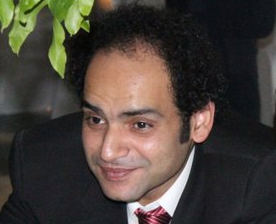“Education is the most powerful weapon which you can use to change the world,” argued the late South African leader Nelson Mandela. Truer words have rarely been said, but I would qualify his statement by prefacing education with “quality”.
By quality, I mean a system that allows children to problem solve, to think for themselves, rather than learn by rote as we were made to do in my day when there were a handful of schools in all the UAE (then collectively known as the Trucial States), and not a single college or university.
Then, families who could afford it often sent their teenagers to schools and universities abroad. Today, there are literally hundreds of public and private centres of advanced learning, with every specialisation under the sun available to students, and new specialist degree courses emerging yearly.
The right education is responsible for molding young impressionable minds, and inspiring them to become the best human beings they can be for themselves and for society as a whole. No one realises its value more than me, which is why I was driven to open my own schools, and was only too happy to fund several university projects at home and abroad.
The United Arab Emirates currently boasts an illiteracy rate of less than 1%, due to the fact that the country sees education as one of its top priorities – some 22% of annual government expenditure goes towards public education. Given that in 1975, only 54% of men and 31% of females could read and write, this shows an amazing achievement.
Education is compulsory from the age of five, and in public institutions is free for nationals, who can also choose higher education abroad, with all expenses paid by the government.
I am proud that our country’s young women have smashed typical western stereotypes painting Arab girls as downtrodden, under-educated and discriminated against in the workplace. You may be surprised to know that female students outnumber their male counterparts in universities, and women graduates make valuable contributions in just about every field – government, health, engineering, science, law, media, IT, energy and aviation. Women hold a third of all public-sector jobs, seven have seats in the Federal National Council and there are five decision-makers in the cabinet.
There was an incredulous reaction worldwide to the news that a female F-16 pilot, Mariam Al-Mansour, led strikes targeting “Islamic State” (IS) in Iraq. “She is a fully qualified, highly-trained, combat-ready pilot and she is on a mission,” said the UAE’s Ambassador to Washington Youssef Al-Otaiba. What you might not know, is that the country not only has three more female fighter pilots, but has trained over 30 women to join the UAE’s security forces.
Our young people grow up with a very special gift, an inherent love of country, which makes them want to serve in any way they can. They enjoy travelling to learn about other cultures, but scant numbers ever express the intention of living permanently in another country. Most are multi-lingual, knowledgeable about the world around them and eager to be ahead of trends.
It is a joy to be around my grandchildren and see them bubbling with excitement and ideas. The wonderful thing about our modern-minded youth is that they are grounded in our traditional values and the importance of maintaining a close and united family.
Private education in the UAE is also big business, mainly driven by expatriates. There are over 160 private schools in Dubai alone, accredited by the Ministry of Information, offering 186 nationalities the choice of Emirati, UK, American, German, French, Russian, Indian, Japanese and Canadian curricula.
A Knowledge and Human Development Authority (KHDA) study, titled “Dubai Private Education Landscape”, estimates that gross revenue obtained by all private schools amounts to AED4.7bn each year. To keep those schools on their toes, and as a guide for parents, the KHDA publishes a ranking for each from “outstanding” to “good”, “acceptable” and “unsatisfactory”.
The study paper outlines 54 higher educational institutions in Dubai, classified into four types – Federal, International, Local and Vocational – and highlights international universities providing an accredited degree from the home institution.
Many international universities are congregated together in free zones, such as Dubai International Academic City. Established in 2007 to further the country’s knowledge-based economy; it hosts 20 universities catering to more than 9,000 students. A similar zone is Dubai’s Knowledge Village. Abu Dhabi is home to the prestigious Paris Sorbonne and the New York Film Academy. The only thing undergraduates at New York University Abu Dhabi could find to complain about was that they were “too pampered” living in luxurious resort-type accommodation a short walk from their campus.
Would-be doctors in Dubai can study at Harvard Medical School, offering limited partial scholarships, which is partnering with Dubai Healthcare City to open a training and research centre. Young entrepreneurs can select from a large array of business colleges in a business-oriented climate open to creative new projects.
The UAE is well on its way to become the region’s top education destination. I wish all the educational opportunities available today were open to me – but, then again, I, like so many of my peers who grew up in an academic wasteland, did not do so badly after all. Education is an important tool to power an individual through life, but without determination, hard work, self-discipline and strength of character, its battery goes flat. My message to the young people of my country is this: Knowing must go hand-in-hand with doing to create the powerhouse to your success.
Khalaf Al Habtoor is a businessman and chairman of Al Habtoor Group. Al Habtoor Group is a Dubai based cooperation with extensive business interests in the region and worldwide, including: hospitality, education, automotive and real estate.




